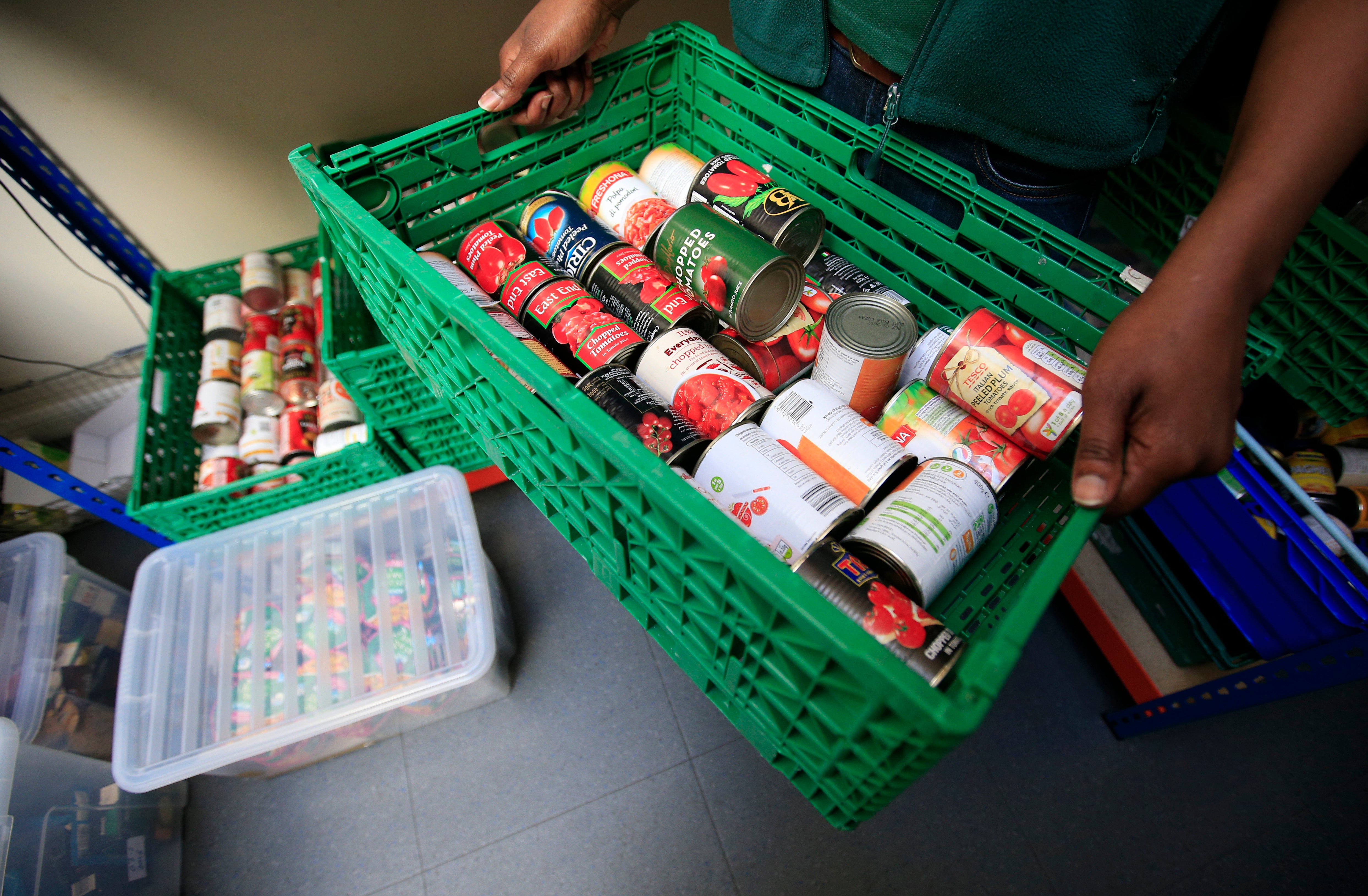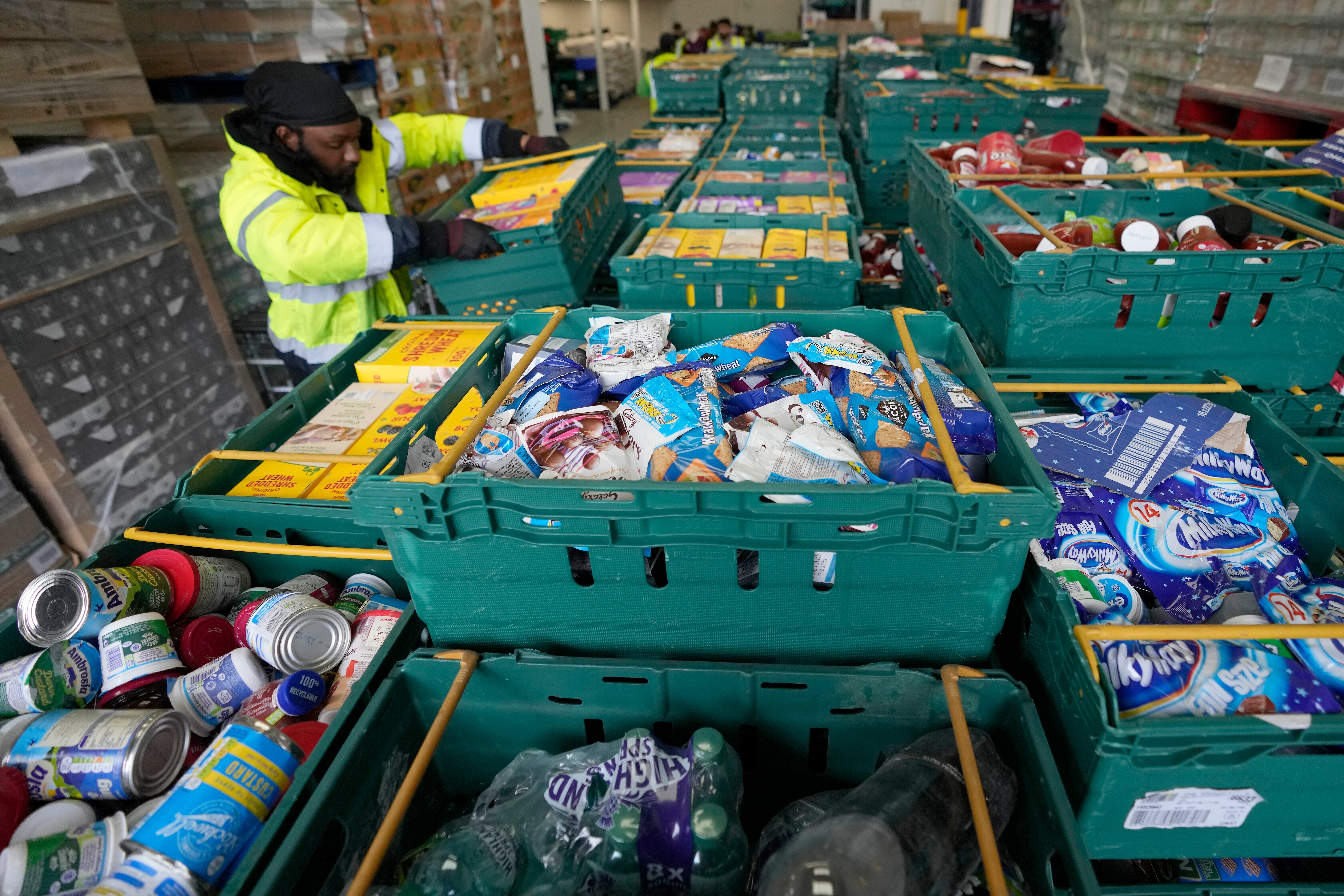Food banks warn of surge in demand this summer unless free school meals extended
Exclusive: Charities fear they may have to turn families away if government fails to expand suppport

Your support helps us to tell the story
From reproductive rights to climate change to Big Tech, The Independent is on the ground when the story is developing. Whether it's investigating the financials of Elon Musk's pro-Trump PAC or producing our latest documentary, 'The A Word', which shines a light on the American women fighting for reproductive rights, we know how important it is to parse out the facts from the messaging.
At such a critical moment in US history, we need reporters on the ground. Your donation allows us to keep sending journalists to speak to both sides of the story.
The Independent is trusted by Americans across the entire political spectrum. And unlike many other quality news outlets, we choose not to lock Americans out of our reporting and analysis with paywalls. We believe quality journalism should be available to everyone, paid for by those who can afford it.
Your support makes all the difference.Food banks expect a further surge in demand for help from struggling families this summer unless the government expands support for parents over the school holidays.
The Independent Food Aid Network (IFAN) said some food banks were having to cut down on the size of parcels, as the cost of living crisis pushes them to breaking point.
Yet ministers are resisting calls to extend free school meal eligibility and payments available during the holidays, despite fears one million children could go hungry.
Desperate food bank bosses told The Independent they expected the summer break to “push yet more through the doors” – and fear they may even have to turn people away.
The Micah Liverpool food bank has seen demand for help increase from around 220 parcels a week last year to more than 400 parcels a week during May.
“We can barely cope at the moment,” said executive director Paul O’Brien. “The demand is like we’ve never seen before, and we’re expecting it to get worse when families are pushed into trouble over the school holidays.”
Mr O’Brien said the Liverpool charity had been forced to cut parcels to basic provisions and was now having “difficult discussions” about whether it will have a cap on the number of people who can be helped.
“We don’t want to turn people away, but this kind of demand is just not sustainable. I fear a lot of food banks will be pushed to breaking point,” he said.
A growing number of councils in England are ending the free school meal vouchers which had been available during the holidays, as campaigners insist that the government has not put enough money into support schemes.
Alexandra McMillan, who runs the Legendary Community Club food bank in Lewisham, said the support from government was “nowhere near enough” – arguing that it was “extremely unfair to expect food banks to pick up the pieces”.
The south London food bank manager also expects a rise in the number of people coming for help during the summer holidays, having seen a 15 per cent increase over the winter.
“It’s scary – there doesn’t seem to be any end to the rise in demand,” said Ms McMillan, who warned the charity might not be able to help anyone new in the coming months. “The safety net is crashing and burning before our eyes.”
England star Marcus Rashford, teaching unions and charities have all urged the government to extend the eligibility for free school meals.
Around 1.7 million children are currently eligible to receive free school meals, but the Food Foundation says 2.6 million children live in households that missed meals or struggled to access food.
Food banks and charity chiefs are also worried about the threadbare safety net during the school holidays, after the government ended a national free school meal voucher scheme last year.

Council leaders in Cornwall, Norfolk, Hampshire and the Isle of Wight are among those to have recently announced an end to the £15 weekly vouchers available out of term time.
The government has committed an extra £500m to the household support fund, which allows councils to give out crisis payments, and put £200m into the holiday activities and food programme, but campaigners say it is not enough.
Tony McCarthy, who runs the Ventnor Community Foodbank on the Isle of Wight, said he expected the end of the £15 vouchers would “push more people into trouble” this summer.
“People will suffer without that universal programme,” he said. “It will have a huge impact if parents can’t afford to pay for extra meals covered through school, as well as dealing with rising bills and prices.”
FareShare, a national charity distributing surplus stock from the food sector to food banks, also called on the government to expand free school meal eligibility. “We hope the government listens, as the hunger problems are acute, and the time for action is now,” said a spokesman.
The charity also called on ministers to help fund food redistribution after a £1.9m trial scheme ended in 2020. “We’re not getting enough food in through the supply chain,” said a FareShare spokesperson. “We stand ready to deliver more.”
IFAN said 93 per cent of managers have reported an increase in demand for help since the start of 2022. Sabine Goodwin, coordinator at IFAN, said “much more needs to be done” to stem the expected surge in demand over the summer.
“Food banks are struggling to cope as it is, and as the cost of living crisis continues the school holidays will inevitably push yet more families to desperation and the doors of food banks,” she said.




Join our commenting forum
Join thought-provoking conversations, follow other Independent readers and see their replies
Comments